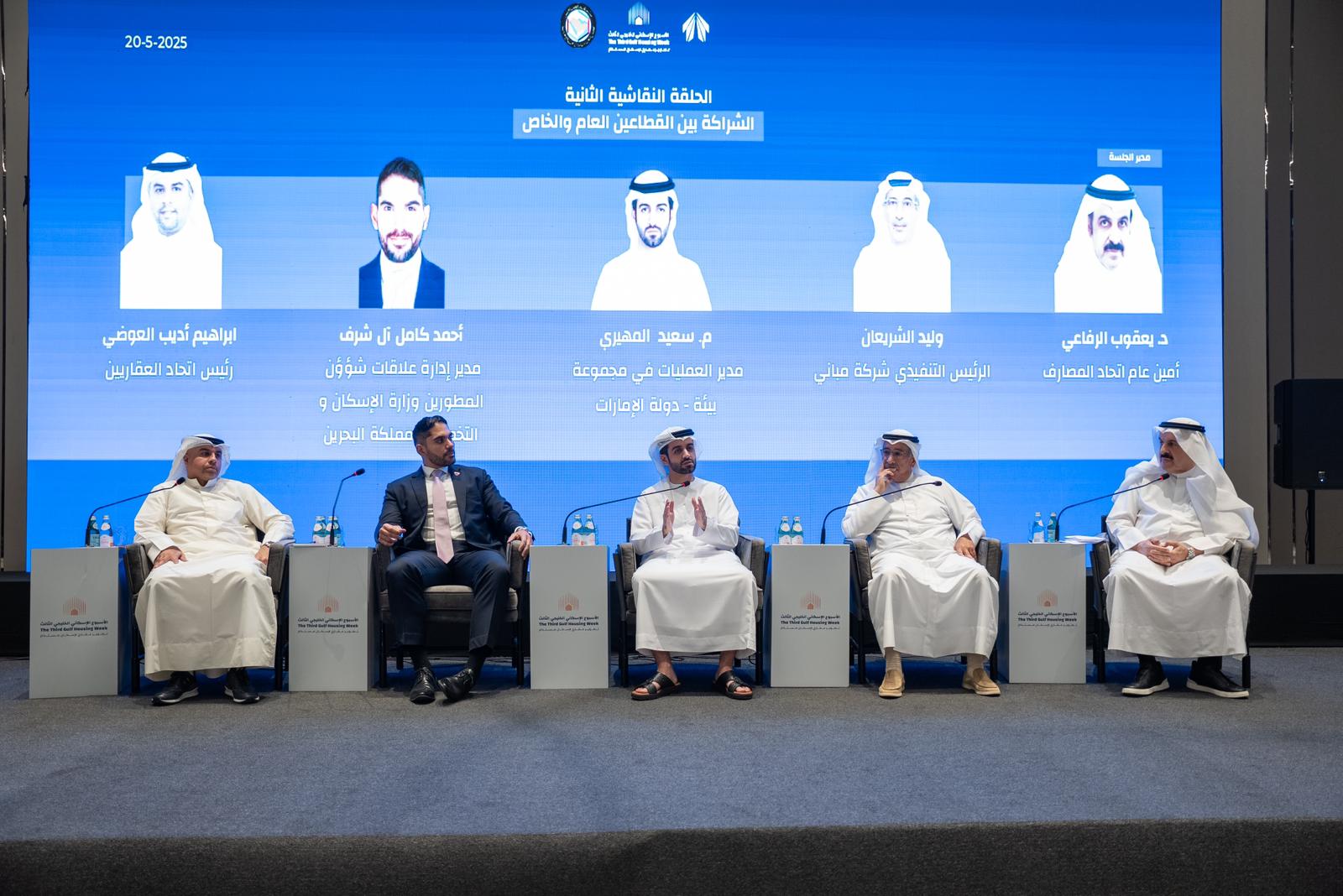The activities of the third Gulf Week, held from May 19 to 21, 2025, and hosted by the Public Authority for Housing Welfare (PAHW) on behalf of the General Secretariat of the Cooperation Council for the Arab States of the Gulf (GCC), witnessed broad participation from senior officials and representatives of the real estate, investment, and financial sectors from GCC countries.
The event provided a strategic platform for enhancing regional cooperation, exchanging expertise, and showcasing successful experiences in the fields of housing and sustainable urban development.
A highlight of the event was a specialized panel discussion titled “Partnerships between the Public and Private Sectors” with the participation of the Kuwait Banking Association.
The session was chaired by Professor Dr. Yaqoub Al-Sayed Yousef Al-Rifaei, Secretary General of the Kuwait Banking Association, who emphasized the importance of effective partnerships between government agencies and the private sector, and the role of the banking sector in supporting these initiatives.
The session featured a number of prominent Gulf figures, including:
• Mr. Waleed Khalid Al-Shariaan, CEO of Mabanee Company – Kuwait
• Mr. Ibrahim Al-Awadhi, Chairman of the Board of Directors of the Real Estate Association – Kuwait
• Engineer Saeed Al-Muhairi, Operations Director at Bee’ah Group – Sharjah
• Mr. Ahmed Kamel Al-Sharaf, Director of Developer Relations at the Ministry of Housing and Planning – Bahrain
The session discussed several key topics related to the reality and aspirations of the Gulf real estate sector, starting with presenting successful models of public-private partnerships in housing and urban development projects, and reviewing the economic and social benefits of these partnerships, such as accelerating completion, improving project quality, and attracting quality investments.
The session also addressed the challenges that may face these partnerships, such as the discrepancy in objectives and policies between the two sectors, and the need for flexible and clear regulatory and legislative frameworks that ensure balance and stimulate a stable investment environment.
Participants agreed on the importance of enhancing institutional coordination and the integration of roles between the two sectors, which will drive sustainable development and enhance quality of life in the Gulf countries.
The session was attended by senior officials from ministries and agencies of housing and urban planning, along with representatives from banks, real estate developers, and entrepreneurs. This facilitated enriching interaction and in-depth discussion on ways to develop these partnerships in light of the economic and legislative transformations in the region.
In this context, Dr. Yaqoub Al-Rifaei emphasized that the Gulf banking sector constitutes a fundamental pillar in financing development partnership projects, calling for building solid cooperation frameworks between financial and governmental institutions to ensure the continuity and success of these partnerships. He also emphasized the Kuwait Banking Association’s commitment to an active presence in regional forums that enhance the role of the financial sector as a key driver of sustainable development.
The convening of the third Gulf Week affirms the GCC countries’ commitment to intensifying regional cooperation, exchanging knowledge, and developing partnership frameworks in the fields of housing, infrastructure, and real estate finance, in line with ambitious national visions, foremost among which is Kuwait Vision 2035 and other development strategies in the Gulf countries.

